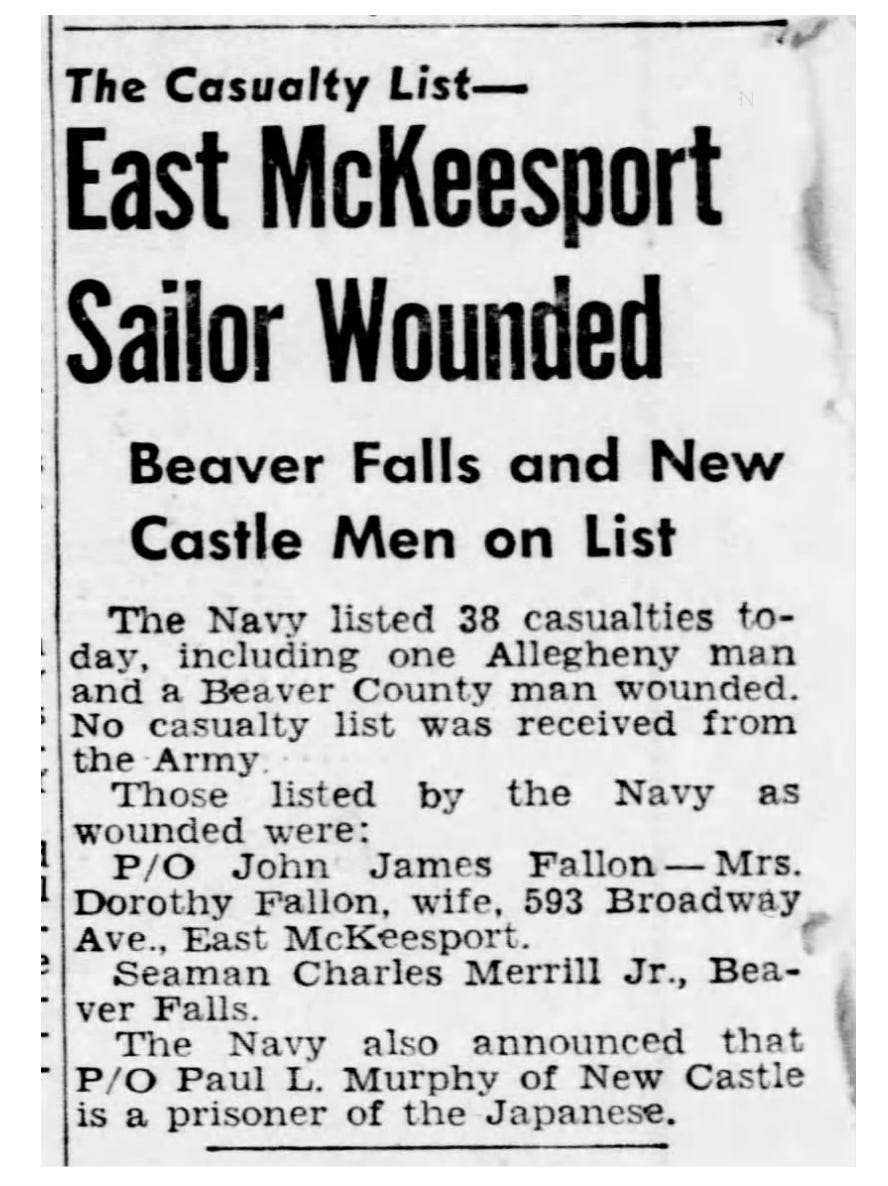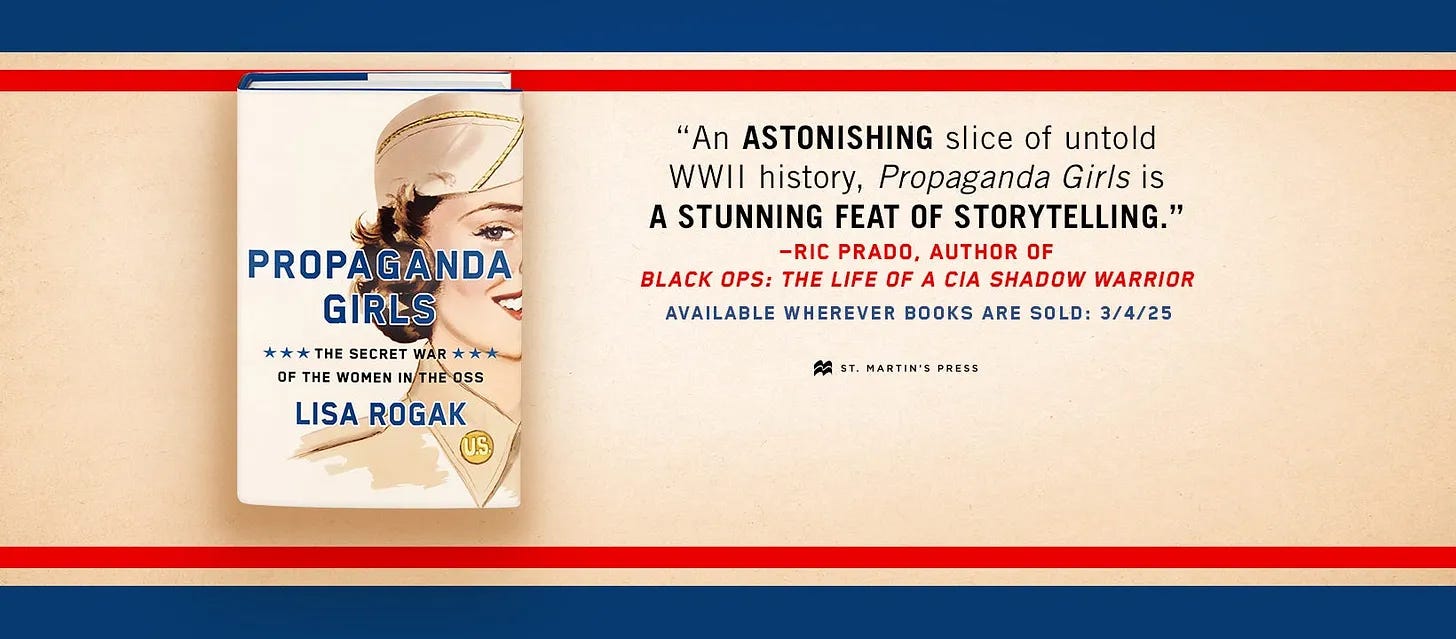To continue from last week: The ones who made it…
John J. Fallon was from McKeesport, Pennsylvania, and unfortunately I couldn’t find much information about him, other than his name on a casualty list in the Pittsburgh Press Gazette on April 28, 1944, and his obituary. BTW, these “Casualty Lists” were almost a daily staple in most newspapers across the country during World War II.
Fallon was part of the Naval Construction Batallion, and among countless other tasks, they were responsible for building staging areas and rudimentary roads on battlefields in both European and Pacific theaters. Uncle Wiki gives more details.
Interestingly, my father’s own WIA notice appeared in the Bayonne Times on the same day as Fallon’s: April 28, 1944. During a war fought on two immense fronts, it often took weeks for news to travel home, first to families and then to local media.
As far as I could piece together from his records, Eniwetok was my father’s first time in battle, and he was on the ground fighting for four days before a bullet from a Japanese sniper found him. He was evacuated to the SS Solace, a hospital ship, and transported to the naval hospital at Pearl Harbor before spending the remainder of his service in and out of military hospitals, mostly as a patient but occasionally working at one as he had done before being wounded.
There are hundreds of other documents I could upload and analyze for you and make connections between, etc etc etc, but honestly, I’m exhausted. This has been an unusually busy summer for me, and between traveling and talks and piano camp and writing, I’m pretty wrung-out, even without the daily onslaught of WTF news headlines. So I’m not going to be as analytical about what I’ve dug up as I anticipated when I first conjured up these two posts.
But here’s what hasn’t left my head over the time that I’ve been researching these four men and their lives before, during, and in two lucky cases, after the war: These men had enlisted in the U.S. military specifically to fight fascists. All of them. Millions upon millions of American citizens knew that fascists were the bad guys and it was something they all took into account every minute of every day of their military careers, even though they knew they could lose their lives at any moment.
And in this case, two of them did.
I honestly cannot imagine what they would make of life in this country today, where fascists of all stripes are revered and celebrated. I don’t think they’d be able to wrap their heads around it. But old habits die hard, and the image I have in my head of a band of century-old outraged men taking up arms to again fight fascism — albeit in their own country…WTF? — makes me smile as few things do these days.
This Week’s Takeaway: When you research your family, the things you find may change your focus…or not. You may have specific ideas about what you’re looking for and what it all means, which may be blown to smithereens once you realize what the research is telling you. And it will undoubtedly shift again over time; research is like surfing: there are waves and wipeouts and moments of zen. It’s easy to become frustrated, and occasionally you may want to block it all out…follow that voice and be gentle with yourself. After all, you’re digging at the pulpy mess of your own history, your own people. Best to let it all sit for awhile, and eventually it will tell you what you need to know.






My spouse grew up in a Christian fundamentalist cult. But her father and mother, at the end of their lives, did not vote for Trump. They knew a fascist when they saw one. Her father was hell bent not to support that on American soil. It was stunning.